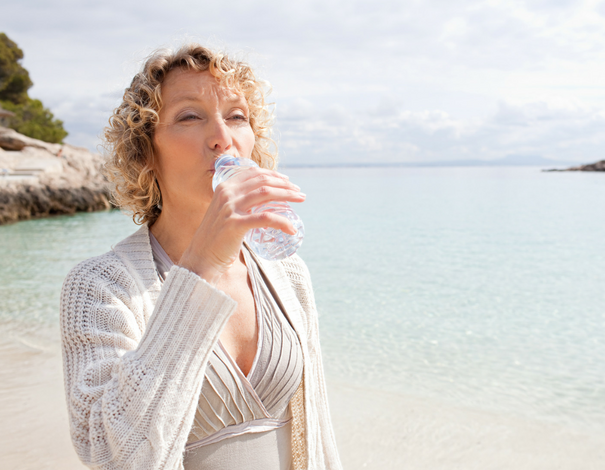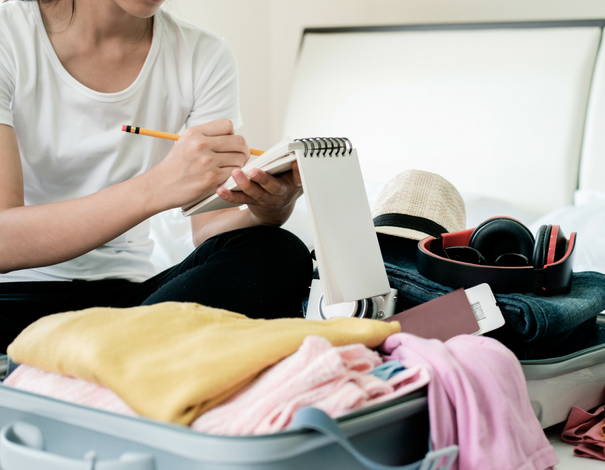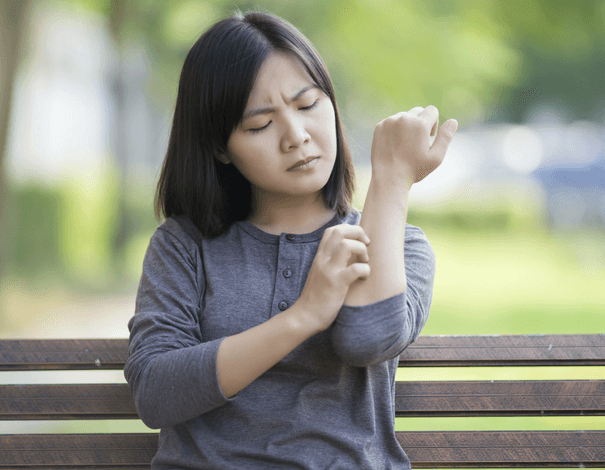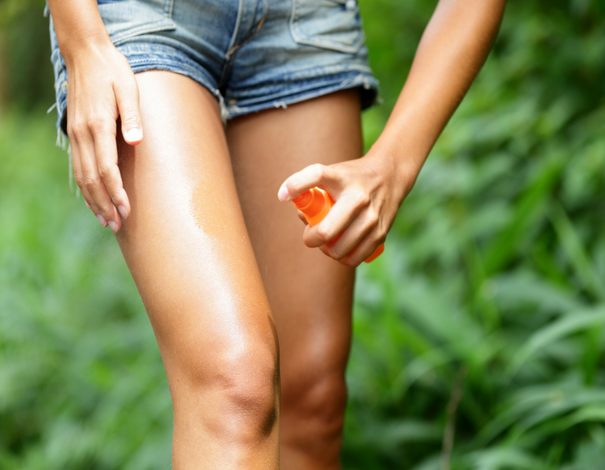How to prevent travellers diarrhea?
There are many potential causes of diarrhea: changes in eating habits, spicy or contaminated food, alcohol, too much sun exposure and heat exhaustion.
Overview of tips and tricks
Since traveller’s diarrhea can occur at most travel destinations, here are a few simple protective measures that will help you avoid having diarrhea during your trip.
Here is our best advice for travellers diarrhea prevention:
- Stay hydrated
- Making the right food choices
- Avoid too long exposure to the sun
- Maintain impeccable hygiene
- Speak to your pharmacist about the traveller’s diarrhea vaccine, probiotics and anti-diarrhea medications.
- Use a travel health checklist to prepare for your stay.
Traveller's Diarrhea symptoms
The most common signs and symptoms of traveller's diarrhea are:
- Abrupt onset of three loose stools in 24 hours
- An urgent need to defecate
- Abdominal cramps
- Nausea
- Vomiting
- Fever
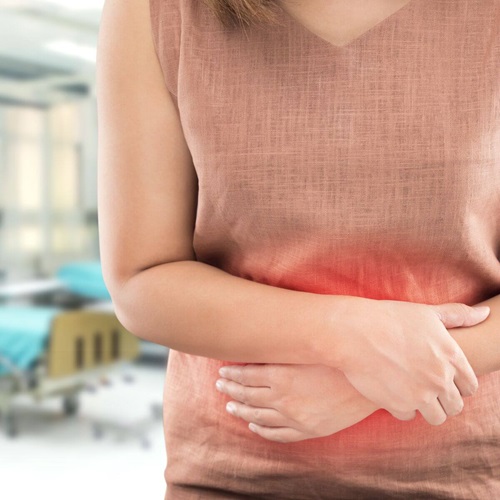
Tip #1: Stay hydrated during your trip
While hydration is important, consuming water contaminated by germs (bacteria or virus) can cause diarrhea. This particular kind is referred to as traveller’s diarrhea or “turista” and is also caused by an infection. Here are some precautions to take:
- Avoid drinking untreated water or ice.
- Try to drink from a bottle with the cap intact.
- Drink still-hot beverages made with boiled water (tea, coffee, broth, etc.).
- Do not drink juices or cocktails made with untreated water or ice.
- Be cautious in places that claim to use a filtration system in their facilities; it may be contaminated or defective.
- Avoid sweet liquids, as they can cause or aggravate diarrhea.
- Limit alcohol consumption because it promotes dehydration and can irritate your digestive system.
For adventure travels, make sure you have an effective water disinfection method that you can use throughout your trip. Some filters have a limited product life use and need to be changed. Be well-informed and prepared before you go.
Tip #2: Make the right food choices
• Avoid spicy foods, especially if you do not usually eat them.
• Eat food that has been well cooked and is still hot.
• Make sure pasteurized dairy products are kept cool at all times.
• Avoid eating fruits and vegetables that do not require peeling or with damaged skin. They may have been rinsed with contaminated water or handled with unwashed hands.
• Be cautious with fish, seafood and mayonnaise. Avoid raw or undercooked meat and fish, as well as shellfish.
• If you eat at a buffet, arrive early to eat freshly prepared foods. Avoid food that has been sitting for a long time or is served at room temperature.
• Do not buy food from street vendors.
Tip #3: Be careful when exposed to the sun
• Limit the time you spend in the sun, especially between 11 a.m. and 4 p.m.
• Wear light, protective clothing and a wide-brim hat.
• Spend as much time in the shade as possible.
Tip #4: Maintain a good hygiene
• If possible, use bottled or treated water to brush your teeth.
• Avoid getting water in your mouth or nose when taking a shower or swimming in fresh water.
• Wash your hands often and thoroughly with soap and water or an alcohol-based hand sanitizer after using the bathroom, before eating and at bedtime, or after coming into contact with a sick person or an animal.
Speak with your pharmacist
Your pharmacist is a good resource to help you make the most out of your trip and avoid traveller’s diarrhea. Here are some subjects to discuss with him or her:
Using probiotics
Taking probiotics (e.g. CulturelleTM or FlorastorTM) while travelling may help reduce the risk of traveller’s diarrhea. Your pharmacist can help you determine if this is a good option for you.
Traveller’s diarrhea vaccine
There is an oral vaccine that can lower your risk of getting traveller’s diarrhea; however, it does not replace being careful with food choices or frequent hand washing. The vaccine is not recommended for everyone, but might be helpful for some travellers. Ask your pharmacist whether this product is right for you and your destination.
Anti-Diarrhea medications
Discuss with your pharmacist the possibility of bringing a “just-in-case” set of antibiotics, which will require a prescription. Having these could be a useful precaution, especially if you travel to an area with limited access to health care. Taking the antibiotics before you get sick will not prevent you from getting traveller’s diarrhea.
After your trip, if you have unused antibiotics, these should be returned to the pharmacy for disposal.
Traveller’s diarrhea is one of the most common conditions to have while travelling. Not only can your pharmacist help you prevent traveller’s diarrhea, he or she can also provide a variety of travel tips and review your medication before leaving.
The information contained herein is provided for informational purposes only and is not intended to provide complete information on the subject matter or to replace the advice of a health professional. This information does not constitute medical consultation, diagnosis or opinion and should not be interpreted as such. Please consult your health care provider if you have any questions about your health, medications or treatment.

